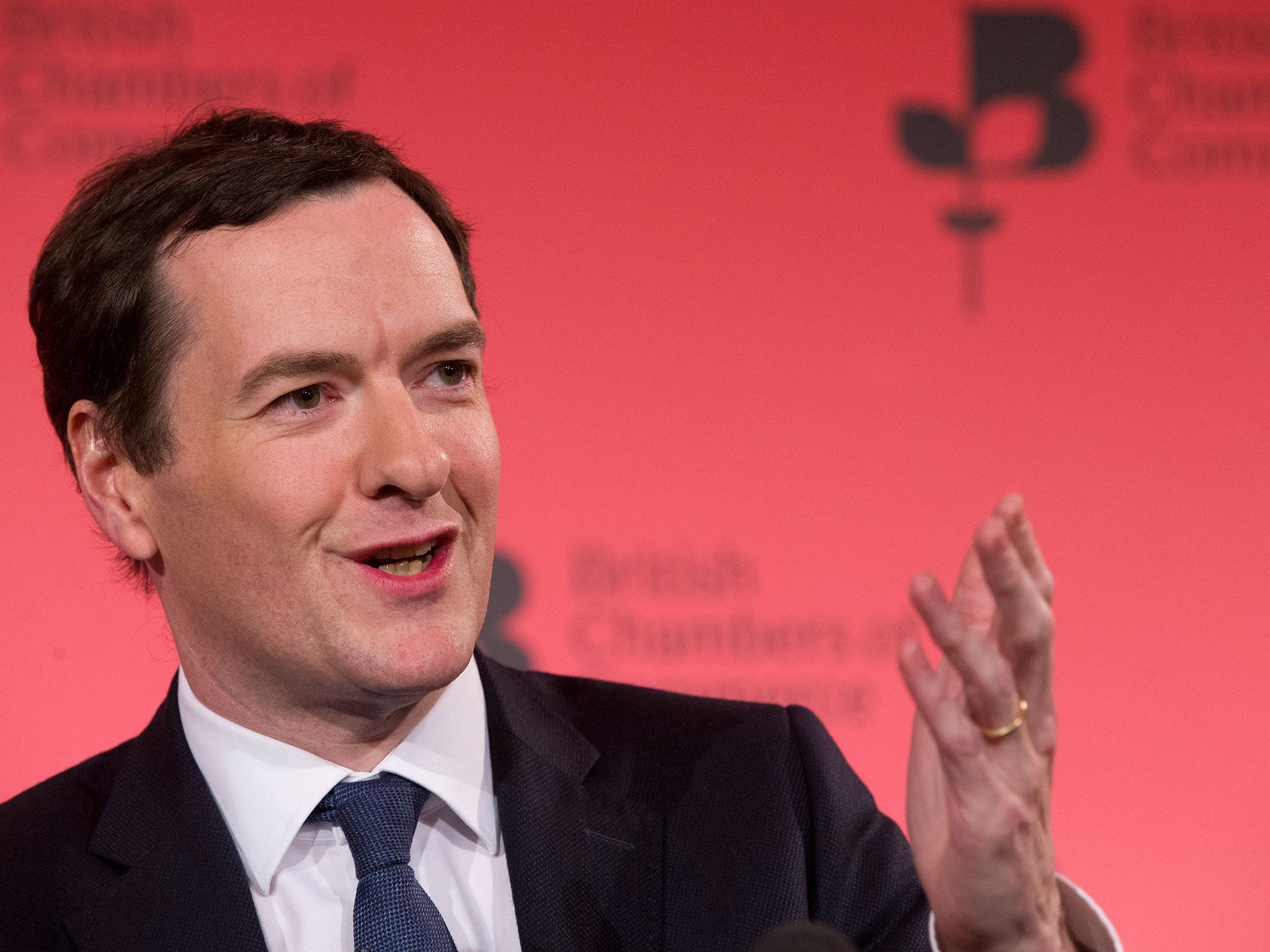Budget 2016: Wealth of super rich soars as the worst-off lose out, report says
Analysis shows richest 1% of Britons have received more than a quarter of the £4trn increase in national wealth since 2000

The super-rich have seen their wealth soar since the turn of the century while the worst-off have lost out, research has found, adding weight to calls for George Osborne to delay higher-rate tax cuts and target spare cash towards families on lower incomes.
In advance of Wednesday’s Budget, analysis by Oxfam reveals that the richest 1 per cent of Britons, a group solely comprising millionaires, have received more than a quarter of the £4trn increase in national wealth since 2000.
Meanwhile the Chancellor is preparing to announce a fresh round of cuts to public spending after he warned that the global economic outlook was at its bleakest since the financial crash of 2008.
Mr Osborne is also considering raising the income threshold for the 40 per cent rate of tax, after saying last year that he aims to increase it eventually to £50,000.
In its study of the UK’s growing economic divide, Oxfam said the average wealth of each member of the elite 1 per cent stood at £3.7m in 2015, an increase of £1.5m each. By contrast, just 7 per cent of the increase went to the less-well-off half of the population, comprising around 30 million people. The average wealth of someone in the poorest 10 per cent of society is £1,600, compared with £1,100 in 2000.
Mark Goldring, Oxfam’s chief executive, said: “It’s simply not right that a tiny group of individuals hoovers up so much of the UK’s growing prosperity while barely any trickles down to those who have least.
“We need action to ensure that a rise in wealth is more evenly shared in order to combat poverty and ensure everyone gets a fair share.”
Releasing the findings, the charity challenged Mr Osborne to order a fresh crackdown on the offshore havens used by wealthy individuals and large companies to limit their tax bills.
Oxfam pointed to estimates that millionaire Britons keep more than £170bn in tax havens such as Bermuda and the Cayman Islands, costing the Treasury about £5bn in lost revenue.
“It’s time the Government ended the secrecy that allows tax dodgers to get away without paying their fair share, robbing the UK – and poor countries – of vital revenue that could help fund public services and provide a strong safety net for the most vulnerable,” Mr Goldring said.
Much attention will also focus on whether the Chancellor moves to raise the thresholds for the 20p and 40p rates of income tax, as promised in the Conservative manifesto.

The Resolution Foundation, which has calculated that 85 per cent of the benefit of the changes would be enjoyed by households that have above-average incomes, urged him to put the plans on ice. Torsten Bell, its director, said: “The priority should be supporting low- and middle-income families instead of going down this route of expensive and poorly targeted tax cuts.”
Mr Osborne paved the way for a downbeat Budget reflecting the fragility of the world economy. He indicated that Wednesday’s package would contain spending cuts worth £4bn but insisted that was not “a huge amount in the scheme of things”.
He also said he would aim to trim another 0.5 per cent off budgets – equivalent to 50p in £100 of government expenditure – by 2019-20.
The planned new round of cuts, which could fall partly on welfare, follows a succession of Budgets since 2010 in which spending has been heavily squeezed. He told BBC1’s Andrew Marr Show: “My message in this Budget is that the world is a more uncertain place than at any time since the financial crisis and we need to act now so we don’t pay later.
“I need to find additional savings equivalent to 50p in every £100 the Government spends by the end of the decade because we have got to live within our means to stay secure and that’s the way we make Britain fit for the future.”
Mr Osborne, who has struck a gloomy note about the world’s finances since the New Year, did not dispute analysis that Britain’s gross domestic product would be £18bn lower than projected this year. The shortfall could leave a multi-million-pound hole in Mr Osborne’s spending calculations.
He refused to be drawn on speculation he would take advantage of the falling price of petrol to raise fuel taxes – a move that would put him at odds with Tory MPs campaigning for the levy to be frozen.
However, Government sources confirmed that Mr Osborne would close a tax loophole used by celebrities and other highly paid individuals to save thousands of pounds a year. He will target abuse of “one-man company schemes” – originally intended for freelancers – in a move that could net the Treasury £400m.
David Cameron is announcing on Monday that low-paid workers who use a new savings scheme will get a bonus of up to £1,200. The Prime Minister says the Help to Save accounts will be open to millions of employees who receive in-work benefits within two years.
Join our commenting forum
Join thought-provoking conversations, follow other Independent readers and see their replies
Comments
Bookmark popover
Removed from bookmarks